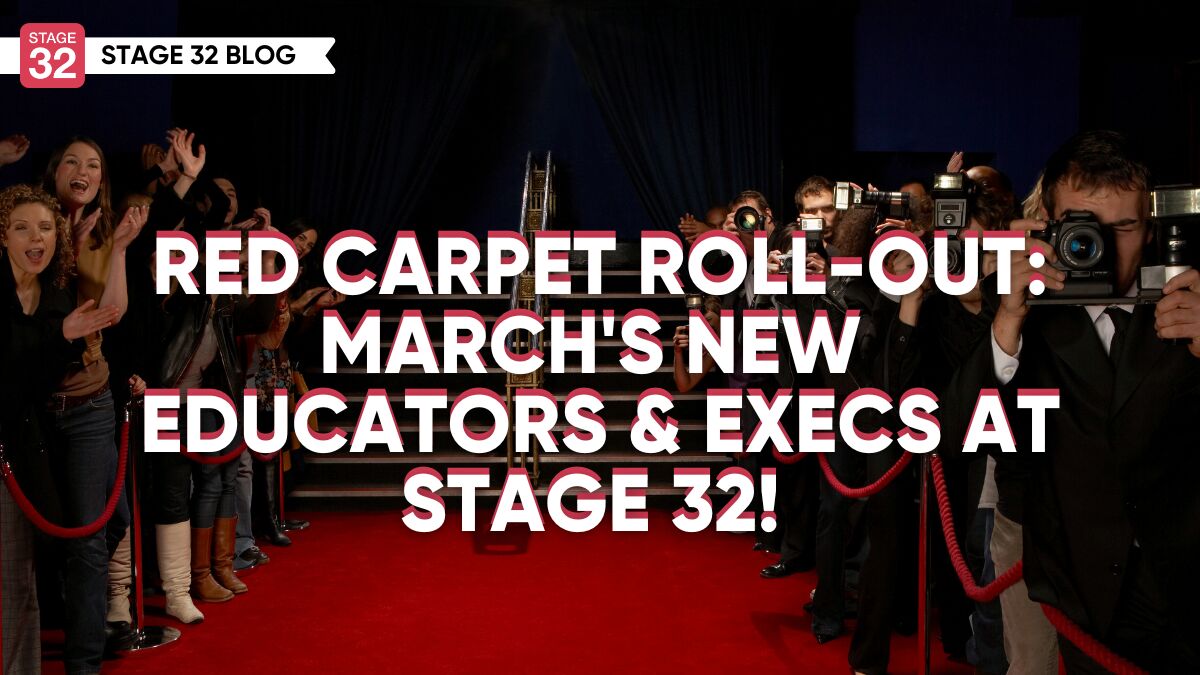Script Coverage 101: A Guide For Entry-Level Screenwriters
Screenwriting forms the backbone of the filmmaking industry, lending structure and substance to the stories that captivate audiences worldwide.
However, for entry-level screenwriters looking to break into the industry, the path to success can be filled with obstacles.
This comprehensive blog aims to shed light on the intrinsic connection between script coverage and screenwriting, emphasizing the vital role that script coverage plays in the development and refinement of screenplay manuscripts.
Aspiring screenwriters will gain a clear understanding of the importance of script coverage in the filmmaking industry, allowing them to navigate the process more effectively and increase their chances of achieving their dreams.
So, let's dive into the world of script coverage and discover how it can propel your screenwriting journey forward.

Understanding Script Coverage
The Intricate Connection between Script Coverage and Screenwriting
In the world of filmmaking, script coverage is an essential bridge between the raw potential of a screenplay and its realization on screen.
At its core, script coverage is a tool used to assess the quality and marketability of a screenplay.
It's a critical step where professionals read and evaluate your script, providing feedback that pinpoints both strengths and areas in need of improvement.
This process is invaluable for screenwriters, especially those just starting out.
It offers a glimpse into the industry's expectations and serves as a litmus test for the screenplay’s readiness for production.
By understanding and utilizing script coverage effectively, screenwriters can refine their work to meet the professional standards demanded by the industry, significantly enhancing their chances of success.
The Significance of Script Coverage in the Filmmaking Industry
Script coverage is not merely a formality, but a pivotal phase within the filmmaking industry.
It functions as a gatekeeper, determining whether a script merits further consideration or needs more work before it can proceed.
Industry professionals rely on coverage to sift through the vast number of submissions, identifying those with substantial promise.
For producers and executives, the insights from script coverage can inform decisions on which projects to fund and develop.
This makes script coverage a significant factor in a screenplay's journey towards becoming a finished film.
Therefore, understanding the weight that script coverage carries inspires a more strategic approach to screenwriting.
Ultimately, it ensures when a script lands on an industry professional's desk, it is compelling, polished, and has the best chance of advancing to the next stage.

Script Coverage For Entry-Level Screenwriters
Decoding the Basics of Script Coverage
For those new to screenwriting, grasping the basics of script coverage is crucial.
At its simplest, script coverage is a summary and analysis of a screenplay by a reader, often provided for a fee by services or as part of a studio's assessment process.
The coverage report typically includes a logline, a synopsis, and a detailed commentary on various elements such as plot, character, dialogue, and structure.
It also usually concludes with a recommendation to pass, consider, or recommend the script for further development.
Understanding these components is the first step for entry-level screenwriters to make informed revisions to their scripts.
By learning to interpret and act on script coverage feedback, screenwriters can better align their work with industry standards and audience expectations, enhancing the screenplay’s potential to be noticed and produced.
Incorporating Script Coverage as a Screenwriting Strategy
Embracing script coverage as an integral part of the screenwriting process is a smart strategy for newcomers.
It's not just about receiving feedback; it's about actively using that feedback to polish and perfect your screenplay.
Think of script coverage as a mentor providing guidance on where your story shines and where it may fall flat.
By incorporating the insights from script coverage, you can preemptively tackle the issues that might prevent your script from resonating with its audience or impressing a producer.
Entry-level screenwriters should seek out coverage early and often, using it as a roadmap for revisions.
This proactive approach can elevate the quality of your script, ensuring that when it does reach the desks of decision-makers, it's been through a rigorous vetting process and is as strong as it can be.

Empowering Screenwriting With Script Coverage
How Script Coverage Boosts Confidence of Entry-Level Screenwriters
Navigating the screenwriting landscape can be daunting for newcomers, but script coverage can be a powerful confidence booster.
Knowing that your script has been scrutinized by a professional reader and has survived the gauntlet of critical analysis can reinforce your belief in your work's potential.
Positive feedback highlights your strengths, affirming that you're on the right track, while constructive criticism provides clear direction for improvement.
Moreover, the process demystifies industry expectations, helping you gauge your progress against professional standards.
As you iteratively refine your screenplay based on coverage, you're not just improving your script; you're also honing your craft.
This iterative process can build your confidence, making you more resilient to the industry's inevitable rejections and better prepared for when opportunity knocks.
Inspirational Examples of Successful Script Coverage
The industry is replete with stories of screenwriters who have turned script coverage into their secret weapon.
Take, for example, a screenplay that languished in a pile until coverage identified its unique voice and compelling storytelling.
Such feedback can lead to revisions that propel a script from the slush pile to the production slate.
There are also tales of screenwriters who, after multiple rounds of coverage and revision, finally struck a chord with the right people.
This not only led to successful films but also launched their careers.
These success stories underscore the transformative potential of script coverage.
They serve as powerful reminders for entry-level screenwriters that the right insight at the right time can make all the difference, turning an overlooked script into the next big hit.

Navigating The Hurdles Of Script Coverage
Common Challenges Entry-Level Screenwriters Face
Beginning screenwriters often encounter a host of challenges when seeking script coverage.
One major hurdle is the subjective nature of the industry.
What resonates with one reader may not impress another, leading to a mix of feedback that can be confusing.
Another issue is dealing with criticism.
It can be challenging to separate personal feelings from professional feedback, especially when it pertains to creative work.
Additionally, the cost of professional coverage services may be prohibitive for those just starting out.
And finally, there's the question of the next steps: even after receiving coverage, knowing how to effectively implement the advice and make the necessary adjustments can be daunting.
Understanding these obstacles is the first step in overcoming them and using script coverage to advance in the competitive field of screenwriting.
Overcoming Obstacles with an Assertive and Optimistic Approach
Tackling the challenges of script coverage calls for an assertive and optimistic mindset.
To overcome the subjectivity in feedback, screenwriters must learn to distill the notes into actionable insights, focusing on recurring themes that multiple readers identify.
Embracing criticism as a tool for growth rather than a personal affront is also vital; it's an opportunity to strengthen the script and your skills as a writer.
For those facing financial barriers, seeking out peer review groups or workshops can be a cost-effective alternative to professional coverage services.
And when it comes to implementing feedback, an assertive approach means setting clear goals for each revision and being open to experimenting with different solutions.
By adopting this positive and proactive attitude, entry-level screenwriters can navigate script coverage hurdles with resilience, paving the way for both personal and professional development.

The Role Of Script Coverage In Meeting Industry Expectations
Script Coverage as a Trusted Advisor for Film Projects
Script coverage serves as a trusted advisor for film projects, guiding them through the labyrinth of industry standards and audience tastes.
It provides an objective assessment that highlights a script's potential and flags areas that may not align with what the market seeks.
By acting on the feedback provided by coverage, filmmakers and screenwriters can tailor their projects to better fit the cinematic landscape and appeal to both investors and viewers.
This external perspective is often the key to refining a script to the point where it not only meets but exceeds industry expectations.
As such, script coverage should be viewed not as a hurdle to be crossed, but as an experienced guide, offering wisdom that can help steer a screenplay toward success and recognition in a highly competitive field.
Mastering the Art of Script Coverage for Professional Success
Achieving professional success in screenwriting often hinges on the ability to master the art of script coverage.
This means not only soliciting and receiving coverage but also understanding how to decipher and act on it.
Screenwriters who excel in this area treat coverage as a dialogue with the industry, learning to read between the lines and anticipate the needs and expectations of the market.
They refine their scripts based on constructive feedback, iterating until each element, from character development to dialogue, aligns with a high standard of storytelling.
By doing so, they signal to industry professionals that they are serious about their craft and open to collaboration.
Mastering script coverage is a dynamic skill that positions screenwriters for success by equipping them with the knowledge and adaptability required to thrive in the ever-evolving landscape of film.
Let's hear your thoughts in the comments below!
Got an idea for a post? Or have you collaborated with Stage 32 members to create a project? We'd love to hear about it. Email Emily at blog@stage32.com and let's get your post published!
Please help support your fellow Stage 32ers by sharing this on social. Check out the social media buttons at the top to share on Instagram @stage32 Twitter @stage32 Facebook @stage32 and LinkedIn @stage-32
| Celebrate The February 2024 Stage 32 Community's Successes |
| Red Carpet Roll-Out: March 2024's New Educators & Execs at Stage 32! |
Search Stage 32 Blog
There are now 4062 blog posts for you to enjoy. Search them all by tags below.
Acting, Advice, Cinematography, Coffee & Content, Composing, Contests, Distribution, Featured, Filmmaking, Financing, Inspirational, Networking, Producing, Screenwriting, Success Stories, Tips, Trending,Relevant Tags
Recommended Articles

Stage 32 Certifying Columbus, Ohio!

Film Contracts Made Simple: Expert Tips To Protect Your Work

Stage 32 Is My Magic Key To International Networking And Education

Coffee & Content: The Genius of Weapons and How to Know When Your Script Is Ready

Coffee & Content: There is No Hollywood Anymore. The World is Hollywood.

Coffee & Content: Know Who You Are, Know Who You’re Pitching To

Insider Intel: 2025- Your Year of Breakthroughs (+ What's Coming in 2026)

Stage 32 Now Certifying El Paso, Texas!

Want Success in the Entertainment Industry? Start Writing Your Own Narrative






